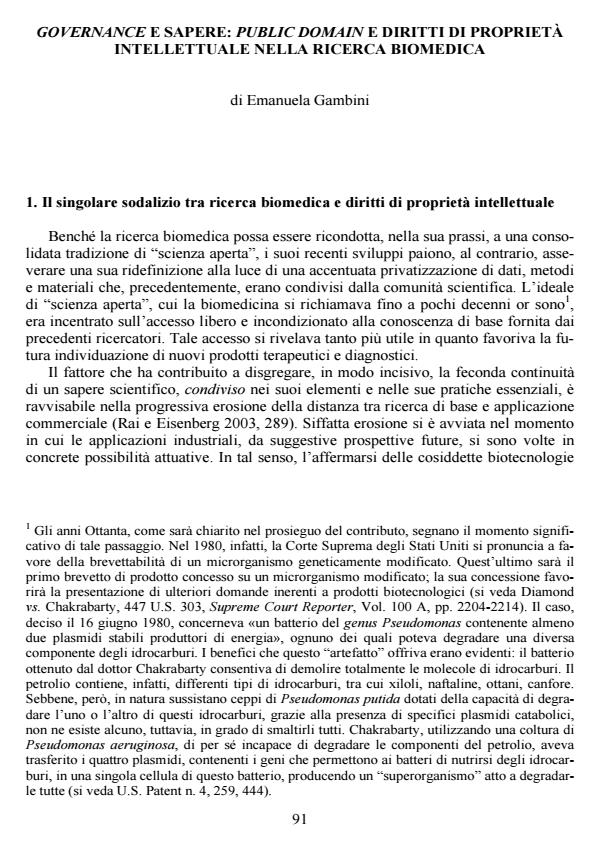Governance e sapere: public domain e diritti di proprietà intellettuale nella ricerca biomedica
Titolo Rivista SOCIOLOGIA E POLITICHE SOCIALI
Autori/Curatori Emanuela Gambini
Anno di pubblicazione 2005 Fascicolo 2005/2
Lingua Italiano Numero pagine 16 P. Dimensione file 97 KB
DOI
Il DOI è il codice a barre della proprietà intellettuale: per saperne di più
clicca qui
Qui sotto puoi vedere in anteprima la prima pagina di questo articolo.
Se questo articolo ti interessa, lo puoi acquistare (e scaricare in formato pdf) seguendo le facili indicazioni per acquistare il download credit. Acquista Download Credits per scaricare questo Articolo in formato PDF

FrancoAngeli è membro della Publishers International Linking Association, Inc (PILA), associazione indipendente e non profit per facilitare (attraverso i servizi tecnologici implementati da CrossRef.org) l’accesso degli studiosi ai contenuti digitali nelle pubblicazioni professionali e scientifiche.
Biomedical research boasts a very solid tradition of open science. However in the last two decades this traditiona has been eroded by intellectual property claims. Such claims encompass fundamental discoveries from which knowledge for future products is drawn. Although patents have been regarded as means to promote the progress of science, recent examples in biomedicine show that this is not always the case. Reiterated granting of patents not only on commercial end products but even on so called research tools may hinder further research, either by creating too many concurrent fragments of intellectual property rights or by increasing the transaction costs of bundling up such rights. These effects are sometimes strengthened by a deliberate policy of allowing applications for patents on the results of publicly funded research. The shortcomings of intellectual property rights can be better understood and dealt with according to the theory of the public domain, which offers a strong case for a new approach to the governance of science and knowledge.
Emanuela Gambini, Governance e sapere: public domain e diritti di proprietà intellettuale nella ricerca biomedica in "SOCIOLOGIA E POLITICHE SOCIALI" 2/2005, pp , DOI: